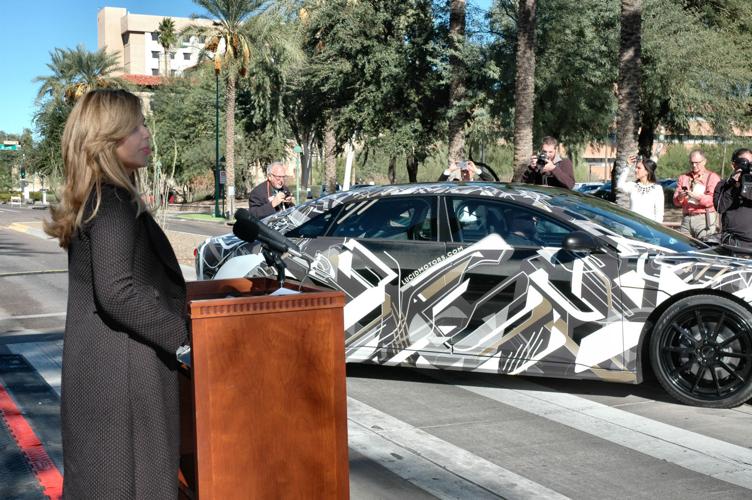It’s astonishing to think back and realize presidential candidates have been bashing NAFTA for political gain since 1992.
That’s the year Ross Perot made it the centerpiece of his independent campaign. But of course Donald Trump exploited anti-free-trade sentiment too — and successfully — this year, more than two decades later.
It’s not hard to figure out why. NAFTA has had mixed effects across the country and the continent. Some have been harmed, some helped, and not all the effects are clearly visible.
But the places where NAFTA still has the worst reputation are in the electoral swing states of the manufacturing belt — Wisconsin, Michigan, Ohio, Pennsylvania. These are the places that lost much of their manufacturing base in the era of free trade, though not necessarily due to the North American Free Trade Agreement.
And they are the states that handed Trump his victory, thanks in part to his absurdly alarmist rhetoric about trade. He actually said a couple of months ago that NAFTA “destroyed this country economically,” while demanding that it be renegotiated or ended.
Suffice it to say NAFTA did not destroy this country economically — far from it.
But his political rhetoric and the national skepticism toward the trade agreement shouldn’t blind us to something obvious: What may have been borderline bad for other places isn’t necessarily bad for us. When all the costs and benefits are weighed, it wasn’t even necessarily bad for them.
For Tucson and Southern Arizona — for the whole state, as a matter of fact — NAFTA has on balance been a boon that is paying increasing dividends year after year. This isn’t to say we haven’t had any job losses — I covered Weiser Lock’s flight from Tucson to Nogales, Sonora, in 2000 and saw 450 jobs disappear down I-19.
But for our area, proximity to Mexico and free trade are among our principal competitive advantages, and ones that we’re finally taking full advantage of, thanks in part to the efforts of elected officials like Tucson Mayor Jonathan Rothschild, a Democrat, and Gov. Doug Ducey, a Republican.
Those two think differently on many issues, but are in lockstep on increasing trade with Sonora and the rest of Mexico.
Think of the Caterpillar deal. This year, the company consolidated operations that were based in Milwaukee, but also spread around the world, at a new Tucson headquarters. It will employ hundreds in great jobs. Accessibility to mining operations in Mexico and parts further south was a crucial reason why Tucson made sense.
Or think way back to a smaller deal in 2007. The Slim Fast plant built on Tucson’s southeast side had never properly worked, so a Mexican bean cannery, La Costena, took it over and has operated it since.
Target.com established a massive distribution center here, and so did HomeGoods, in part due to proximity to Mexico and access to its markets.
Nogales is also doing well, with 1 million new square feet of warehouse space built in 2ƒ years as the new Mariposa Port of Entry came on line, produce distributor Jaime Chamberlain told me.
“There is an incredible buzz in Nogales right now,” he said. “There is an incredible burst of growth since we have our brand-new port of entry.”
And of course, on Tuesday, state and local officials announced that a new electric-car manufacturing plant will be built in Pinal County, with parts supplied from Sonora. The hopeful projection is that the plant will employ 2,000 people on this side of the border. Even if it’s half that number, it will be a massive benefit to the region.
When I asked Rothschild about Trump’s rhetoric on free trade, he said it’s crucial for us that the country not become isolationist.
“It’s fine to renegotiate trade agreements,” he said. “They need to be looked at for sensitivity to labor issues, environment issues, fairness issues. There’s a big difference between negotiating and slamming a door.”
That’s the same way Mexican Ambassador Carlos Manuel Sada was speaking when my colleague Gabriela Rico interviewed him Monday. The agreement can be revised, he said, but it shouldn’t be thrown out in ignorance of its benefits.
I also talked Tuesday with Mauro Guillen, a professor of international management at the Wharton School at the University of Pennsylvania, the same business school Trump attended. He noted that while the job losses in specific towns in states like Pennsylvania have been evident and left a negative impact, there have been many less-noticed benefits.
European and Japanese automakers responded to NAFTA by building plants in the South. Prices on consumer goods went down because they were being made in cheaper locations, which was a net benefit to most of us. And Mexico’s economy has surged, meaning its economy is supporting its people well enough that now net migration to and from the United States is zero.
Then there is a whole other area of promise: Mexican companies locating here. You may have read the news last week about Suspiros Pastelerias, an Hermosillo-based bakery chain, beginning its U.S. expansion in Tucson.
That’s part of a broader effort by Rothschild and others in Arizona, and involving former Mexican President Vicente Fox, to help Mexican companies locate here. His effort is focused on incubating Mexican startups in Tucson.
Other Mexican-born businessmen have been participating in the rebirth of downtown Tucson.
So, it is obvious why a presidential candidate would trash NAFTA — it can pave his path to the White House through the industrial Midwest.
But this is where free trade’s promise is flourishing, and it would be pointless to smother it now.





